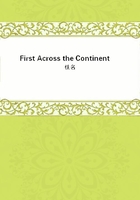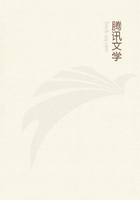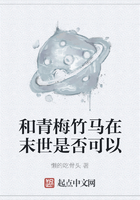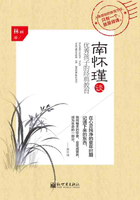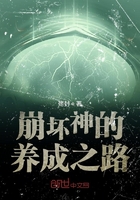John; the poor listener, strange to say, can perceive clearly the Godhead of Christ, but is perplexed at His manhood; he wishes to get as firm a hold of it 'as if Christ came to meet him out of a wood.' His friend thereupon exhorts him to be humble, since this was only a doubt sent him by the Devil.Soon after it occurs to the penitent that he has not fulfilled a vow made in his youth to go on pilgrimage to the Impruneta; his friend promises to do it in his stead.Meantime the confessor--a monk, as was desired, from Savonarola's monastery--arrives, and after giving him the explanation quoted above of the opinion of St.Thomas Aquinas on tyrannicide, exhorts him to bear death manfully.Boscoli makes answer: 'Father, waste no time on this; the philosophers have taught it me already; help me to bear death out of love to Christ.' What follows, the communion, the leave-taking and the execution--is very touchingly described; one point deserves special mention.When Boscoli laid his head on the block, he begged the executioner to delay the stroke for a moment: 'During the whole time since the announcement of the sentence he had been striving after a close union with God, without attaining it as he wished, and now in this supreme moment he thought that by a strong effort he could give himself wholly to God.' It is clearly some half-understood expression of Savonarola which was troubling him.
If we had more confessions of this character the spiritual picture of the time would be richer by many important features which no poem or treatise has preserved for us.We should see more clearly how strong the inborn religious instinct was, how subjective and how variable the relation of the individual to religion, and what powerful enemies and competitors religion had.That men whose inward condition is of this nature, are not the men to found a new church, is evident; but the history of the Western spirit would be imperfect without a view of that fermenting period among the Italians, while other nations, who have had no share in the evolution of thought, may be passed over without loss.
But we must return to the question of immortality.
If unbelief in this respect made such progress among the more highly cultivated natures, the reason lay partly in the fact that the great earthly task of discovering the world and representing it in word and form, absorbed most of the higher spiritual faculties.We have already spoken of the inevitable worldliness of the Renaissance.But this investigation and this art were necessarily accompanied by a general spirit of doubt and inquiry.If this spirit shows itself but little in literature, if we find, for example, only isolated instances of the beginnings of biblical criticism, we are not therefore to infer that it had no existence.The sound of it was only overpowered by the need of representation and creation in all departments-- that is, by the artistic instinct; and it was further checked, whenever it tried to express itself theoretically, by the already existing despotism of the Church.This spirit of doubt must, for reasons too obvious to need discussion, have inevitably and chiefly busied itself with the question of the state of man after death.
And here came in the influence of antiquity, and worked in a twofold fashion on the argument.In the first place men set themselves to master the psychology of the ancients, and tortured the letter of Aristotle for a decisive answer.In one of the Lucianic dialogues of the time, Charon tells Mercury how he questioned Aristotle on his belief in immortality, when the philosopher crossed in the Stygian boat; but the prudent sage, although dead in the body and nevertheless living on, declined to compromise himself by a definite answer--and centuries later how was it likely to fare with the interpretation of his writings? All the more eagerly did men dispute about his opinion and that of others on the true nature of the soul, its origin, its pre-existence, its unity in all men, its absolute eternitY, even its transformations; and there were men who treated of these things in the pulpit.The dispute was warmly carried on even in the fifteenth century; some proved that Aristotle taught the doctrine of an immortal soul; others complained of the hardness of men's hearts, who would not believe that there was a soul at all, till they saw it sitting down on a chair before them; Filelfo, in his funeral oration on Francesco Sforza, brings forward a long list of opinions of ancient and even of Arab philosophers in favour of immortality, and closes the mixture, which covers a folio page and a half of print, with the words, 'Besides all this we have the Old and New Testaments, which are above all truth.' Then came the Florentine Platonists with their master's doctrine of the soul, supplemented at times, as in the case of Pico, by Christian teaching.But the opposite opinion prevailed in the instructed world.At the beginning of the sixteenth century the stumbling-block which it put in the way of the Church was so serious that Leo X set forth a Constitution at the Lateran Council in 1513, in defence of the immortality and individuality of the soul, the latter against those who asserted that there was but one soul in all men.Afew years later appeared the work of Pomponazzo, in which the impossibility of a philosophical proof of immortality is maintained;and the contest was now waged incessantly with replies and 'apologies,'
till it was silenced by the Catholic reaction.The pre-existence of the soul in God, conceived more or less in accordance with Plato's theory of ideas, long remained a common belief, and proved of service even to the poets.The consequences which followed from it as to the mode of the soul's continued existence after death were not more closely considered.


